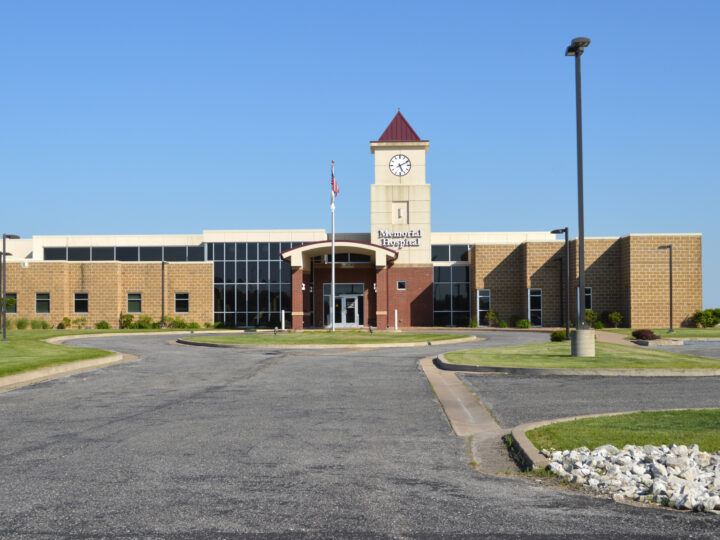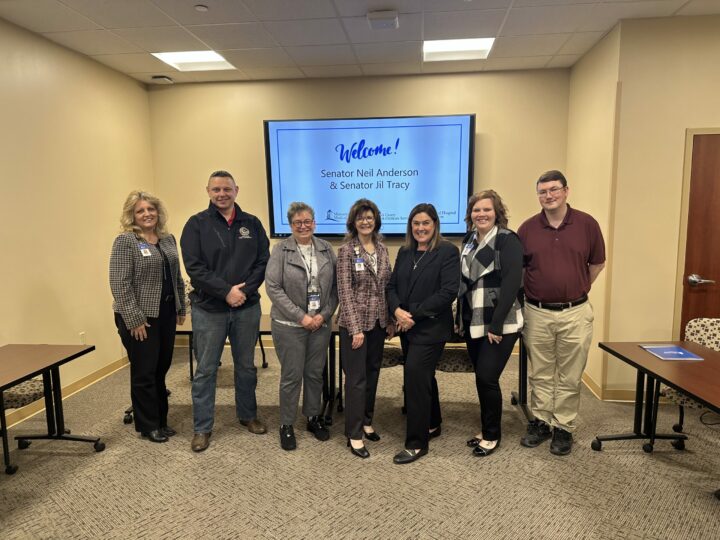
Join Memorial Hospital’s Behavioral Health and Evergreen Center this May to celebrate Mental Health Awareness Month, a time to spread awareness and help break down mental illness stigma.
In a rapidly changing world that can be complex to navigate, about half of Americans can remember a time when they were not constantly connected and it was easier to tune out the noise of the world, while the younger half of the population can’t imagine life without the internet.
Modern life can have a significant impact on mental health — for better or for worse. The disturbing imagery in the media people are exposed to today can be deeply unsettling. At the same time, our current technology also allows us to mobilize and provide collective support more efficiently in times of natural disasters or injustice.
And ironically, while devices connect people more than ever, loneliness is an increasingly serious public health concern. People can now have conversations with friends and family on the other side of the world in real time. However, constant connection also means that people will know if they weren’t invited to a friend’s party down the street. Recent survey data show that more than half of US adults (58%) are lonely. Finding a sense of calm and focusing on well-being when experiencing mental health concerns can be daunting in our fast-paced society. It can be especially challenging to know where to start.
In honor of Mental Health Awareness Month, Memorial Hospital is raising awareness of the important role mental health plays in our lives. Memorial Hospital’s healthcare professionals are encouraging members of the community to take action toward protecting their mental health and overall well-being.
This month, they encourage you to:
- Educate Yourself: Take the time to learn more about mental health conditions, their signs, symptoms, and treatment options. Understanding mental health can help reduce stigma and encourage seeking help when needed.
- Connect with Others: Reach out to friends, family, or support groups for emotional support and social connection. Talking about your feelings and experiences can help reduce feelings of isolation and loneliness.
- Limit Screen Time: Take breaks from screens and technology, especially social media, which can sometimes contribute to feelings of inadequacy or comparison. Instead, spend time engaging in activities that nourish your mind and body.
- Build a Coping Toolbox: Creating your toolbox can be as simple as writing a list (on your phone or on paper) of what helps, like breathing exercises or going for a run – this way, when you start struggling with your mental health, you don’t have to remember what to do or search for tips. You can also have a physical toolbox and fill it with things like a stress ball, written notes to yourself, and photos that make you happy. If you make a physical toolbox, it’s a good idea to still include a list of (non-physical) coping skills that help.
If you’re taking steps to improve your mental health but are still struggling or are not sure where to start on your mental health journey, we encourage you to connect with your healthcare provider or reach out to a member of our team today.
“It’s important to remember that working on your mental health takes time. Change won’t happen overnight. Instead, by focusing on small changes, you can move through the stressors of modern life and develop long-term strategies to support yourself — and others — on an ongoing basis,” said Valerie Brown, RN, Program Director of Memorial Hospital’s Evergreen Center.
Mental Health Services available at Memorial Hospital and Clinic in Carthage, IL
Behavioral Health at Memorial Medical Clinic provides care to children ages 4-17 and adults 18+, including medication management, counseling, and addiction services. For more information, contact 217-357-6888.
Evergreen Center available at Memorial Hospital in Carthage, IL
Evergreen Center is a program designed to meet the unique needs of individuals typically 65 and older experiencing depression or anxiety related to life changes that are often associated with aging. For more information, contact 217-357-6516.
Pictured: Memorial Hospital healthcare professionals wearing green to celebrate Mental Health Awareness Month.







